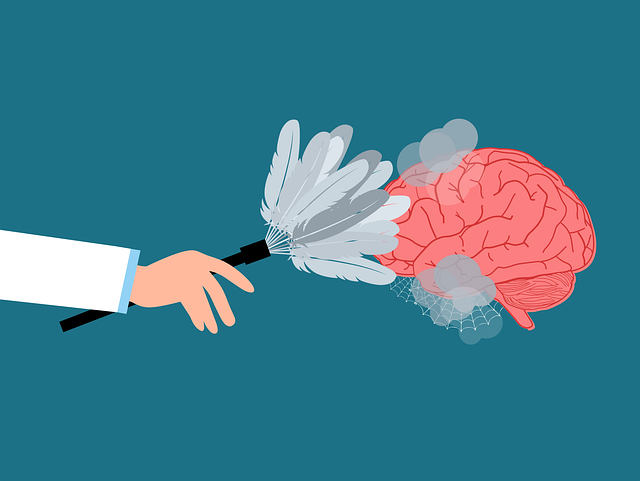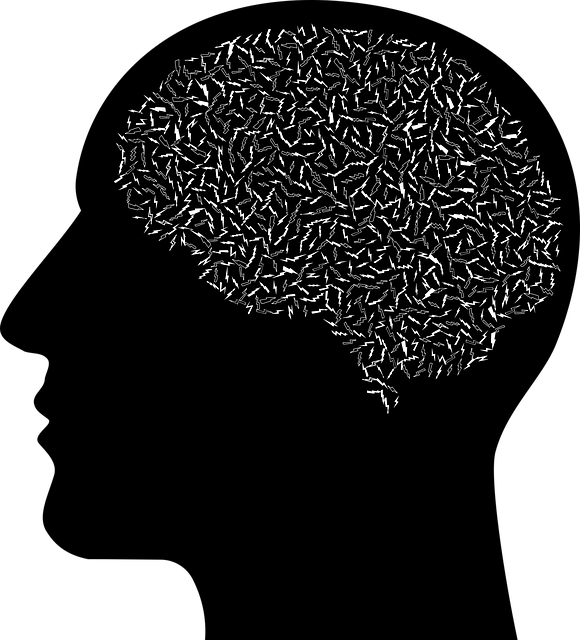Lone Tree Neuro Disorders Therapy emphasizes the importance of coping skills in managing neuro disorders, offering personalized holistic support. Through techniques like mindfulness meditation and mind over matter, they empower individuals to confront anxiety, depression, and trauma symptoms. By integrating these strategies into daily life, clients enhance resilience, self-care, and overall well-being, enabling them to navigate challenges with greater ease. The therapy focuses on emotional regulation, mind-body connection, and tailored interventions for optimal mental wellness, fostering a stigma-reducing environment. Regular practice and educational resources ensure coping skills become ingrained for long-term emotional balance.
Coping skills development is a vital aspect of managing neuro disorders, offering individuals tools to navigate challenges with resilience. This article explores the significance of coping mechanisms in neuro disorder therapy and highlights the transformative power of Lone Tree Neuro Disorders Therapy in fostering these skills. We delve into personalized strategies, practical techniques, and long-term benefits, providing insights for enhancing daily life coping abilities. Discover how tailored approaches at Lone Tree Neuro Disorders Therapy can pave the way for sustained resilience.
- Understanding Coping Skills and Their Significance in Neuro Disorders Therapy
- The Role of Lone Tree Neuro Disorders Therapy in Fostering Resilient Coping Mechanisms
- Identifying Individual Needs: Personalized Coping Strategies for Optimal Results
- Practical Techniques to Enhance Coping Skills in Daily Life
- Long-term Benefits and Continuous Support for Sustained Coping Ability
Understanding Coping Skills and Their Significance in Neuro Disorders Therapy

Coping skills are essential strategies that individuals use to navigate and manage stressful situations or challenging life events. In the context of neuro disorders therapy, such as that offered at Lone Tree Neuro Disorders Therapy, understanding coping skills becomes pivotal. These skills empower patients to confront and overcome symptoms related to conditions like anxiety, depression, and trauma. By integrating effective coping mechanisms into their lives, individuals can enhance their overall well-being and quality of life.
The significance of coping skills lies in their ability to foster resilience and promote self-care practices. Techniques such as mindfulness meditation and applying mind over matter principles have been proven beneficial for managing neuro disorders. Mindfulness encourages individuals to focus on the present moment, reducing anxious thoughts and fostering a sense of calm. Mind over matter principles help patients challenge negative thought patterns and replace them with more positive, realistic perspectives. These coping strategies not only support symptom reduction but also enable individuals to navigate life’s challenges with greater ease and adaptability.
The Role of Lone Tree Neuro Disorders Therapy in Fostering Resilient Coping Mechanisms

Lone Tree Neuro Disorders Therapy plays a pivotal role in fostering resilient coping mechanisms by addressing the unique challenges presented by neuro disorders. Through tailored interventions, this therapy helps individuals develop effective emotional regulation strategies, enhancing their ability to navigate life’s stressors with greater ease. By focusing on both the mind and body, Lone Tree Neuro Disorders Therapy incorporates confidence-boosting techniques and self-care practices designed to empower individuals to take control of their mental health.
The approach prioritizes personalized care, recognizing that every individual’s journey is distinct. Through specialized programs, therapists guide clients in identifying and modifying negative thought patterns, cultivating healthy coping habits, and building inner strength. This holistic support system not only equips individuals with the tools to manage symptoms but also fosters a sense of resilience, enabling them to thrive despite the challenges posed by neuro disorders.
Identifying Individual Needs: Personalized Coping Strategies for Optimal Results

Every individual has unique needs when it comes to coping with life’s challenges. At Lone Tree Neuro Disorders Therapy, we understand that one-size-fits-all approaches rarely lead to optimal results. Our therapists work collaboratively with each client to identify their specific triggers, coping mechanisms, and areas of vulnerability. This personalized approach allows us to tailor crisis intervention guidance and mental wellness coaching programs development to address the individual’s unique needs.
By recognizing the interconnectedness of mental health and neurodiversity, we go beyond simply treating symptoms. We empower individuals with effective tools and techniques for managing stress, anxiety, and emotional distress while also fostering an environment that supports mental illness stigma reduction efforts. Through tailored coping strategies, clients gain resilience and build a foundation for lasting mental wellness.
Practical Techniques to Enhance Coping Skills in Daily Life

Incorporating practical techniques into daily routines can significantly enhance coping skills, offering individuals effective tools to navigate life’s challenges, especially when managing neuro disorders. Lone Tree Neuro Disorders Therapy emphasizes the importance of self-care and resilience. One powerful method is mindfulness meditation, which teaches individuals to focus on the present moment, reducing anxiety and stress. By practicing awareness, one can better manage intense emotions, a skill particularly beneficial for those dealing with sensory sensitivities or emotional regulation difficulties.
Additionally, conflict resolution techniques play a pivotal role in fostering inner strength development. Learning peaceful methods of communication and problem-solving allows individuals to confront challenges without escalating tension. Building confidence through mastering these skills empowers people to assert their needs and boundaries, leading to improved relationships and overall well-being. This proactive approach to coping prepares individuals for various stressors, enabling them to face life’s twists and turns with enhanced resilience.
Long-term Benefits and Continuous Support for Sustained Coping Ability

Developing coping skills is a powerful tool for navigating life’s challenges and offers long-lasting benefits. When individuals learn to manage stress, anxiety, or difficult emotions effectively, they build resilience that can prevent the onset of mental health disorders. This enhanced emotional intelligence allows people to face future obstacles with a sense of calm and clarity, reducing the risk of developing conditions like depression or anxiety disorders.
Continuous support plays a crucial role in sustaining these coping abilities. Regular practice and refinement of these skills through therapy, such as that offered by Lone Tree Neuro Disorders Therapy, can ensure they become second nature. Mental wellness is a journey, and ongoing support, including engaging with educational resources like the Mental Wellness Podcast Series Production, can foster a deeper understanding of one’s emotions and behaviors. This holistic approach to mental health awareness empowers individuals to maintain their emotional balance and overall well-being over time.
Coping skills development is a multifaceted process that, when incorporated into neuro disorders therapy, like that offered by Lone Tree Neuro Disorders Therapy, can significantly enhance an individual’s resilience and overall well-being. By identifying personal needs and implementing tailored strategies, individuals can acquire practical techniques to navigate life’s challenges effectively. The long-term benefits of this approach include sustained coping abilities, fostering a sense of control, and improving the quality of life. Lone Tree Neuro Disorders Therapy plays a pivotal role in empowering folks to embrace these changes, thereby revolutionizing their journey towards resilience.












